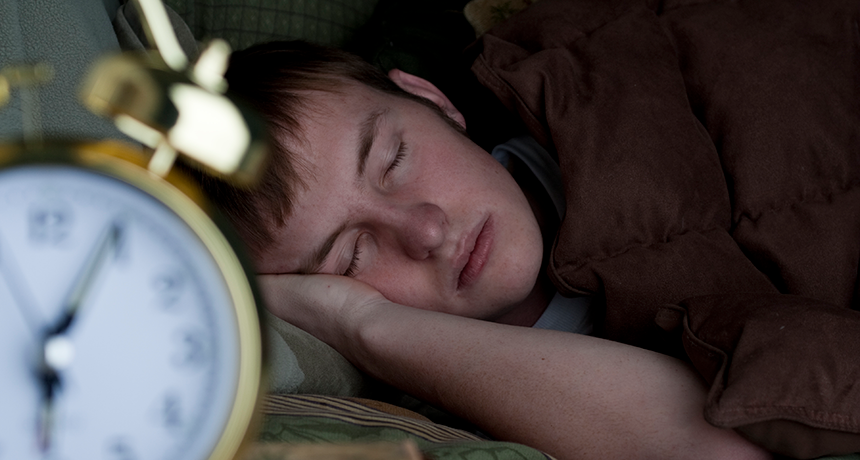Questions for ‘Don’t snooze on getting enough sleep’

Teens need between 8 and 10 hours of sleep each night, although most don’t get it.
grandriver/E+/Getty Images
Come explore with us!

Teens need between 8 and 10 hours of sleep each night, although most don’t get it.
grandriver/E+/Getty Images
To accompany feature “Don’t snooze on getting enough sleep”
1. What is your sleep schedule like? Do you sleep a similar amount every night, starting at the same time? Or do you skimp during the week and sleep in on weekends? What about napping?
2. When you don’t get enough sleep, do you notice differences in how your body feels? Describe them — and any differences in your thoughts and feelings?
1. Name at least three ways that sleep is important for our bodies and minds.
2. What relationship between sleep and weight did researchers from the University of South Australia find?
3. Why might the timing of food consumption, such as late-night snacking, lead to higher BMI?
4. What are the names of two hormones that affect our feelings of hunger and fullness?
5. How can getting less sleep be related to screen time?
6. In the study by Fuligni and Gonzales, how much sleep did teens with the highest grades get? What about the teens who felt best mentally?
7. What is a circadian rhythm, and how is it affected by changing sleep patterns during the week and over the weekend?
8. How can napping harm your sleep patterns?
9. What type of nap is helpful for adults?
10. List at least three ways you can help your body wind down before bedtime.
1. The study by Fuligni and Gonzales suggests that teens who get the highest grades sacrifice some sleep to do so. But these students aren’t the happiest. When you trade sleep for schoolwork, what are some of the possible effects on your body and mind? Is the tradeoff one you are still willing to make? Explain your reasoning.
2. How did reading this article make you think about your own sleep patterns? What factors most impact when and how long you sleep? Do your sleep patterns leave you feeling good? Would you like to make some changes?
Register to access:
An error occurred. Please try again.
Already Registered? Enter your e-mail address above.